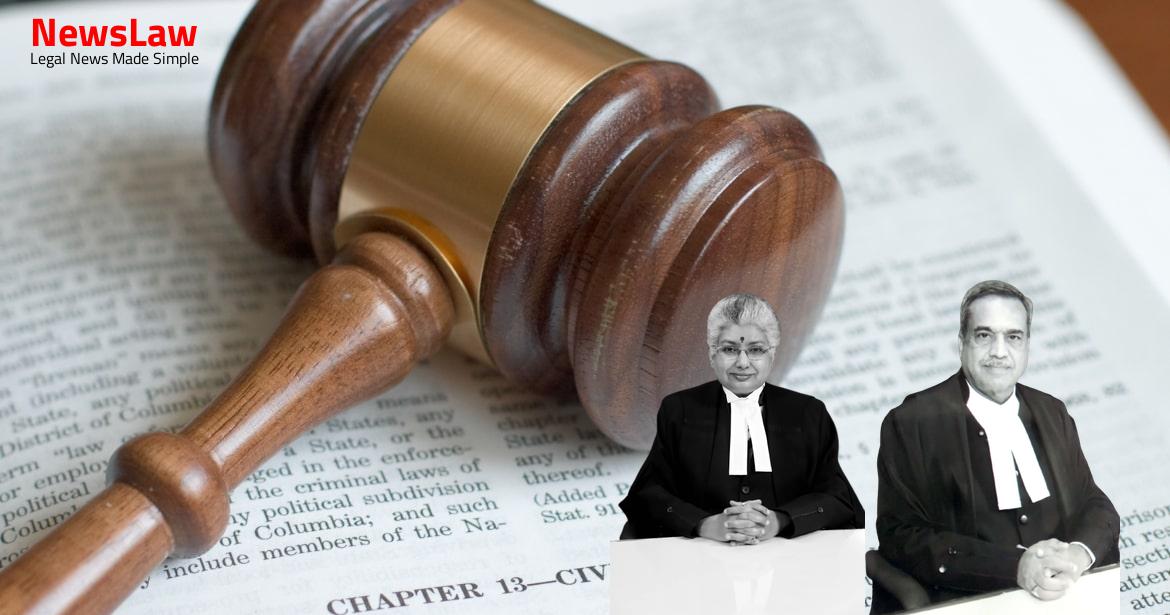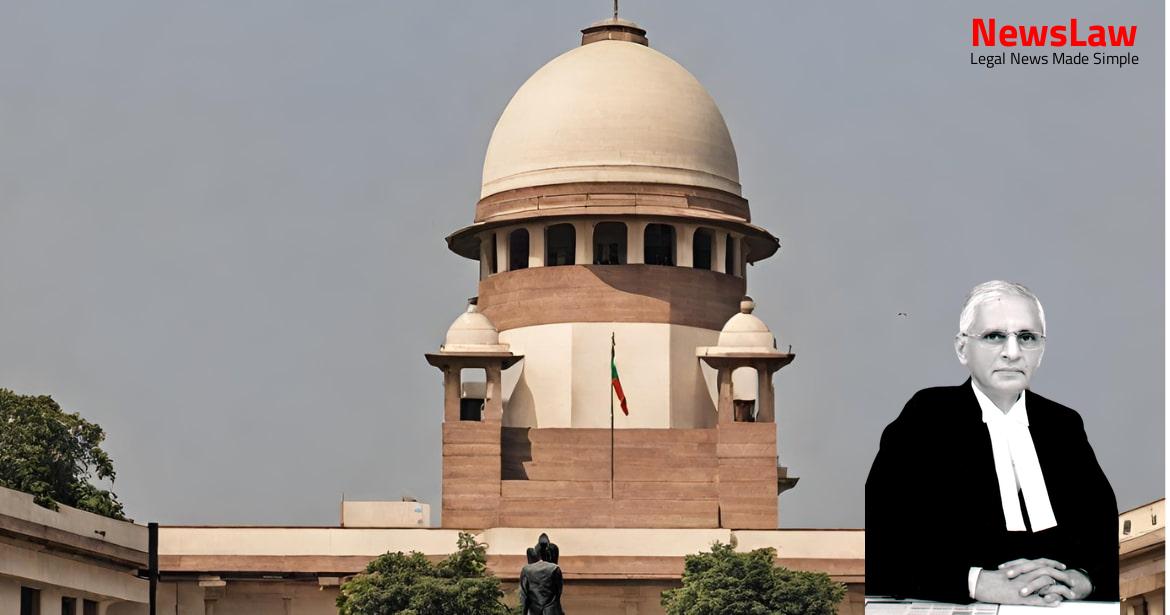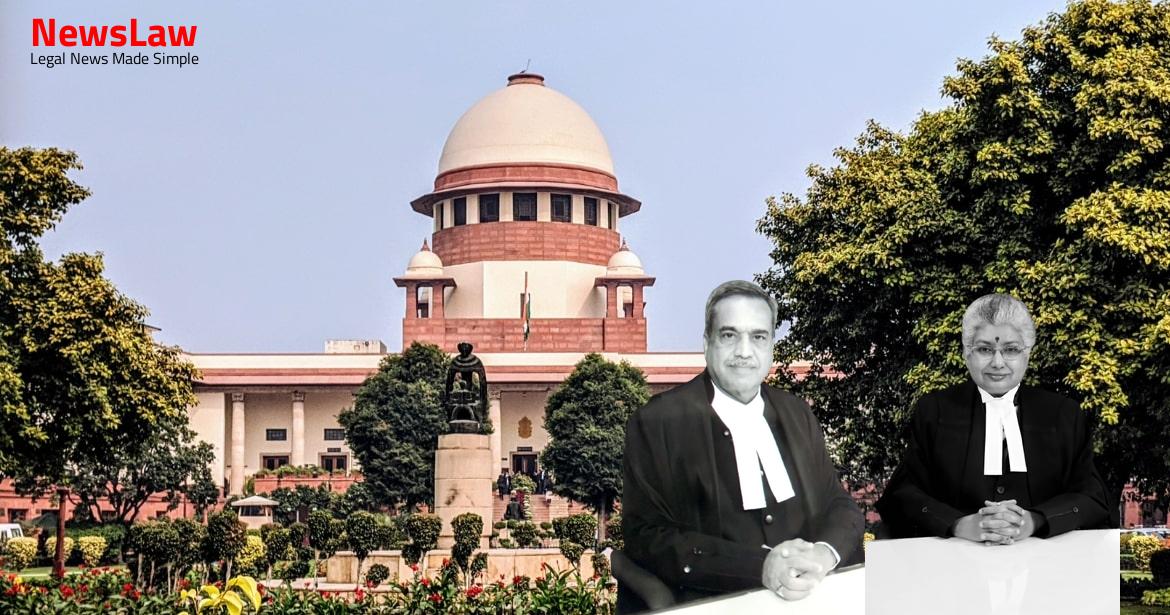COMMISSIONER (ASSESSMENT) TRADE TAX…RESPONDENT WITH Civil Appeal NOs.5965-5966 OF 2023 M/s TRIVENI GLASS LTD. After taking note of the books of accounts tendered during the course of the assessment proceedings the assessing officer opined after enquiry that tinted glass has been manufactured by assessee in a separate unit and the process adopted for its manufacture is different from manufacture of sheet glass. Hence, the assessing officer imposed tax @15% on the sale of the goods by holding that said goods cannot be included in the category of plain glass but under the category of “all goods and wares made of glass” as reflected in the Notification No.5784 dated 4 07.09.1981. The assessee pursued its grievance before the High Court by filing a revision petition contending that plain glass panes which are commercially known as sheet glass includes sheet glass both in tinted and non-tinted forms and the entry “plain glass panes” cannot be interpreted to exclude the tinted glass from its purview. The notices demanding tax @15% for the tax assessment years 1992-93 to 1996-97 came to be challenged in Writ Petition No 283 of 2001 before the High Court of judicature at Allahabad which writ petition came to be dismissed in the light of said issue having already been laid to rest in appellant’s case itself, in the light of assessment order for the tax assessment year 1996-97 having been passed by rejecting the similar contentions. Bagaria, learned senior counsel appearing for the appellant-assessee has contended that tinted glass is also sheet glass and as such attracts 10% tax and not 15% as claimed by the revenue.
He would submit that in the earlier assessment year the assessing authority itself had treated the “tinted glass sheet” as plain glass sheet and as such for the assessment year in question it should be accordingly treated. (1981) 2 SCC 528 (vii) Commissioner of Sales Tax, Madhya Pradesh Vs Triveni Sheet Glass Works Ltd. And Others (1989) SCC Online MP 346: (1990) 76 STC 308 (FB) (viii) Commissioner of Sales Tax. Vikas Bhawan, New Delhi Vs Baluja Glass Company 1979 SCC Online Del 300: (1980) 46 STC 17 (ix) Commissioner of Sales Tax Vs Mohd. Vs Commissioner of Central Excise, Chandigarh (1997) 2 SCC 677 (xi) U.P. Vs Commissioner of Central Excise 2 SCC 628 (xvi) State of Uttar Pradesh & Others vs Aryaverth Chawal Udyog & Others (2015) 17 SCC 324 (xvii) Commissioner of Customs (Import), Mumbai vs Dilip Kumar & Company & Ors.
excludes plain glass panes and treated the same as unclassified item, the Trade Tax Tribunal and lower authorities were justified to tax tinted/plaint glass panes as declared commodity? (iv) Whether once the entry plain glass panes is specifically excluded from the entry “All goods and wares made of glass” the authorities were not justified in imposing tax on plain glass panes (coloured and tinted glass panes) as goods made of glass wares/ (v) Whether in view of the fact that by mixing inch of colours no new commercial commodity comes into existence as tinted/coloured glass panes is a plain glass panes, still the tax can be imposed as declared commodity instead of unclassified item? The tug of war between the assesses and the revenue in these appeals revolves around the plea of assessee that tinted glasses manufactured by it falls under clause (c) of sub-section (1) of Section 3A namely residuary clause and as such tax is to be levied @ 10%; whereas revenue is contending that it would fall under Entry No.4 of the notification No.5784 dated 07.09.1981 which Notification has been issued in exercise of the power conferred under clause(d) of Sub-section (1) of Section 3A of the Act. It reads as under: “Section 3-A: Rates of tax (1) Except as provided in Section 3-D, the tax payable by a dealer under this Act shall be levied:– (a) on the turnover in respect of “declared goods”, at the point of sale to the consumer at the maximum rate for the time being specified in Section 15 of the Central Sales Tax Act, 1956, or where the State Government, by notification, declares any other single point or a lesser rate, at such other point or at such lesser rate; (b) the turnover in respect of such goods), other than the goods referred to in clause (a), at such point and at such rate, not exceeding fifty per cent, as the State Government may, by notification, declare, and different points and different rates may be declared in respect of different goods (c) on the turnover in respect of goods, other than those referred to in clause (a) or clause (b), at the point of sale by manufacturer or importer at the rate of ten percent. (3) Where the State Government has declared any point or rate at which the tax payable by a dealer under the Act be levied under clause (b), clause (c), clause (c-1), clause (d) or clause (e) of sub-section (1) as existed immediately before the 13 commencement of the Uttar Pradesh Trade Tax (Second Amendment) Act, 2000 and such declaration in force on such commencement, such rate or point of tax shall continue to be in force after such commencement, until modified or rescinded.” 14.
The Notification No ST-2-5784/X-10(1)-80 dated 7/9/1981 issued in exercise of the power conferred under clause(d) of Sub- 14 section (1) of Section 3A of the Act specifies that under Entry No 4 reads as under: “4. All goods and glass wares made of glass but not including plain glass panes optical lenses, hurricane lantern, chimneys bottles and phials, glass beads, clinical syringes, Therma Meters and scientific apparatus and instruments made of glass.” Thus, on a plain reading of the above entry it would leave no manner of doubt that all goods and wares made of glass would fall within the definition of the said entry or in other words, all goods and wares made of glass would fall within Entry No.IV of the aforesaid notification and thus attract a duty @15 %. (iv) All the goods and wares made of glass but not including plain glass, panes, opticals lenses, Hurricane lantern, chimneys, bottles and phials glass beads, clinical syringes, thermometer and scientific apparatus and instruments made of glass. By a catena of decisions it is settled law that an expression used in a taxing statute for describing a commodity must be given the meaning which is generally given to it by a person in the trade or in the market of commodities and should be interpreted in the sense the person conversant with the subject-matter of the statute and dealing with it would attribute to it. Reiterating the position with regard to interpretation of provisions in fiscal statues and adherence to the principle of popular meaning as understood in their common and popular ex-parlance in the matter of State of Jharkhand and others Vs. Similarly, Macmillan Dictionary defines “type” as “a group of people or things with similar qualities or features that make them different from other groups” and “form” as “the particular way in which something appears or exists or a shape of someone or something”. This judgment which was relied upon under the impugned order came to be distinguished as under: “Then, reliance was placed on CST, Madhya Pradesh Vs Triveni Sheet Glass Works Limited (1990), 76 STC 308, a full bench decision of the Madhya Pradesh High Court. The Full Bench was of the opinion that in these decisions, it was not taken into account that the glass sheet is common parlance is glass simplicitor” and glass sheet is a primary product used for producing articles of goods made of glass. Collector of Central Excise, (1986) 63 STC 322 has held the test commonly applied to determine whether an article after subjecting to manufacturing processes becomes a different article or remains the same is: how is the product identified by the class or section of the people dealing with or using such product.
In the case of a glass mirror, the consumer recalls primarily the reflective function of the article more than anything else. 75-76, para 7) “… In determining the meaning or connotation of words and expressions describing an article or commodity the turnover of which is taxed in a sales tax enactment, if there is one principle fairly well settled it is that the words or expressions must be construed in the sense in which they are understood in the trade, by the dealer and the consumer. CST, Uttar Pradesh [(1981) 2 SCC 528 : 1981 SCC (Tax) 130 : AIR 1981 SC 1079 : (1981) 3 SCR 294] where hypodermic clinical syringes were regarded as falling 21 more accurately under the entry relating to “hospital equipment and apparatus” rather than under the entry which related to “glasswares” in the UP Sales Tax Act.” In the aforesaid Judgment, the question that arose for consideration was under what tariff item ‘glass mirror’ would fall, and glass screens fitted in motor vehicles as wind screens, rear screens, window screens would fall under which competing tariff item. It was further held that said commodity is referred to as a glass mirror only because the word “glass” which is descriptive of the mirror and basis or fundamental character of the article lies in its being a mirror cannot be regarded as glass. In fact, the High Court has noticed this fact and has recorded the following finding: “The said issue can be resolved from the point of view as to how the persons who are in the business understands the meaning of plain glass sheets in commercial words, as noticed by the tribunal, plain glass sheets means colourless glass or having a colour of water. Now, we proceed to note the simple dictionary meaning assigned with regard to “plain glass panes” in order to examine the 23 claim of assessee to extend the meaning assigned to “plain glass sheet” to “tinted glass sheet.” PLAIN: Webster’s Encyclopaedic Unabridged Dictionary 1989 Edition defines “Plain” as- “Plain (plan) adj. one’s meaning plain, a dislike of the subject that was plain. without a pattern, figure, or device: a plain fabric. not rich, highly seasoned, or elaborately prepared, as food: plain, fresh, substantial fare; a plain diet. clearly and simply: He’s just plain stupid – n. easy to see or understand……….” In the Dictionary by Webster the word “plain” means as follows: 24 “(plein) 1. a division of a window etc, containing such a sheet of glass in a frame a flat side or edge of a many-sided object.” “ Concise Oxford Dictionary defines “Pane” as – a single sheet of glass in a window or door. Yet another contention was raised that commodity remains the same even after the manufacturing process and applying the said principle to the product on hand, namely tinted glass sheets would continue to be the genus of the species namely “plain glass panes” by relying upon Gujarat Steel Tubes Ltd.
Whereas in the instant case the tinted glass sheet during the process of manufacture has undergone a change and as noticed by the authorities it has more radiation absorption capacity and is also different in its transparency and density than a plain glass sheet or in other words the commodity did not remain the same after the manufacturing process. The solar radiation absorption capacity of tinted coloured glass is more than that of the simple sheet glass. Therefore, the plain sheet of tinted coloured glass cannot be deemed as sheet glass. Assistant Sales Tax Officer – (1962) 1 SCR 279 wherein challenge to the imposition of sales tax on beetle leaves by the revenue came to be upheld by arriving at a conclusion that the legislature by using two distinct and different items that is item 6 “vegetables” item 36 “beetle leaves” had indicated its intention. Indo International Industries vs Commissioner of Sales Tax, Uttar Pradesh (1981) 2 SCC 528 almost similar issue namely whether hypodermic clinical syringes could be regarded as “glass ware” under Entry 39 of First Schedule of UP Sales Tax Act, 1948 and negatived the plea of the assessee by opining that in taxing statues, words and phrases must be construed as understood in popular or commercial parlance and not technically.



